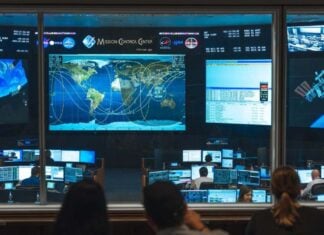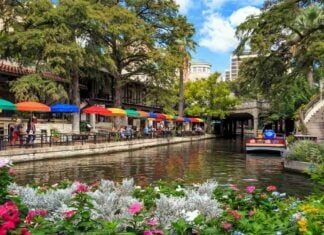
Some say the ground shook. Others didn’t feel a thing.
Lamps swayed and staircases shifted. Foundations of homes and buildings were damaged. The Washington Monument was hit hard enough to jostle tourists inside.
Those were some of the effects Americans mostly on the East Coast experienced nearly two weeks ago, when a 4.8-magnitude earthquake struck just north of Whitehouse Station in north Jersey at about 10:30 a.m., according to the United States Geological Survey (USGS).
The April 5 quake was felt across the New York City area and from Philadelphia to Boston, with aftershocks even hours later. But there were no deaths or major damage, according to the New York Times.
The story was about the same 13 years ago, when an even mightier temblor of 5.8 struck the U.S. on the afternoon of Aug. 23 in Mineral, Virginia. No lives were lost, but damage was estimated in the millions.
Although not the strongest earthquake to have occurred in the eastern or western U.S. at that point, the 2011 temblor was likely felt by more people than any other in North America’s history, the USGS noted, mostly because of large distances at which people felt the ground under them shake and population density in the eastern part of the country.
“The 2011 earthquake in Virginia was significant in raising awareness of East Coast earthquake hazards and the importance of research to understand when and where earthquakes can occur,” explained David Applegate of the USGS. “Damaging earthquakes do not strike the eastern U.S. often, but the potential consequences of not understanding and planning for such events – with their widely distributed shaking – could be severe.
“The next significant earthquake on an Eastern U.S. fault may not occur for hundreds of years, yet there is a small chance it could happen at any time.”
Applegate turned out to be right nearly two weeks ago. Like the solar eclipse that had everyone abuzz on April 8, the 2024 quake was on everyone’s lips as a collective American experience. We don’t have many of those, namely events that can jolt us out of our routines the way 9/11, the JFK assassination and the moon landing did.
“Shared experiences define what it means to be an American,” according to the Pew Research Center.
In a 2016 survey, Pew found that Americans are primarily bound together during major events, but more by those that occurred during their generations. The very oldest of us will likely cite the Great Depression and World War II, the survey showed. Boomers and Gen Xers relate not only to JFK’s death and the moon walk, but to the Vietnam War and the dissolution of the Soviet Union. Millennials and Gen Zers will mostly recall the 9/11 attacks, but also the election of America’s first Black president, Barack Obama; the tech revolution; and mass school shootings.
Events like these have a way of bringing Americans together by yanking us out of a collective stupor characterized by a focus only on ourselves.
“Every so often, amidst the frequent incivility and conflict in society, we notice reductions in the angry ‘noise’ emanating from the media and politics,” wrote Dr. Saul Levine for Psychology Today in 2017. “For a while at least, sounds of animosity diminish, and people are, well, ‘nicer’ to each other.”
Were we nicer toward each other during the recent earthquake? The eclipse?
The latter drew many people to ecstatic watch parties planned around the country. The quake wasn’t planned, but it had us talking to each other all the same.









